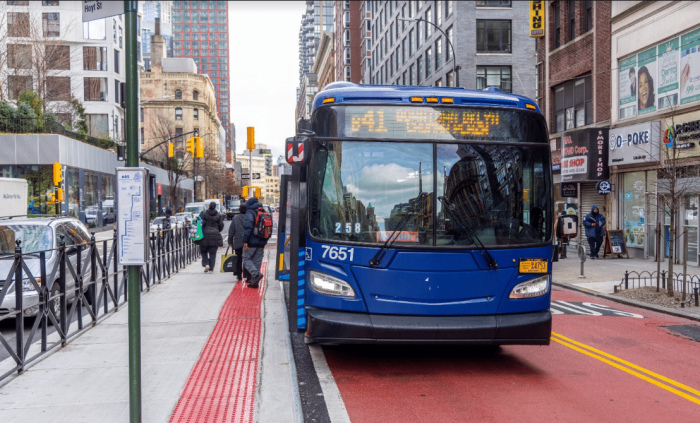By Michèle De Meglio
Swedish meatballs and Baltic herring filets. Physiology lectures and star-studded parties. These were the highlights of a Brooklyn teen’s all-expenses paid trip to Stockholm, Sweden. The excursion was Coney Island resident Michael Vishnevetsky’s prize for being one of three winners of the Nobel Prize Essay Contest. In December, the Midwood High School senior and his fellow winners, Alina Fradlis of Staten Island and Jedtsada Laucharoen of the Bronx, spent seven days exploring Sweden and attending celebrations and ceremonies associated with the awarding of the 2005 Nobel Prizes. “The greatest part about our trip was that we got to see Sweden and learn about the culture and lifestyle there,” gushed Vishnevetsky. The three winners discovered Sweden through the eyes of the country’s teens. “We got to visit a high school and meet the kids and attend some of their classes,” Vishnevetsky said. Comparing the quality of the public school’s classrooms and science labs to those in Brooklyn, Vishnevetsky said New York’s facilities leave a lot to be desired. “I was amazed by their schools. Their labs were a lot more advanced. It seemed like a lot more money was put in their labs. Their labs were like university labs,” he said. The winners didn’t spend all their time in school. They devoted much of their trip to sightseeing and sampling Sweden’s culinary delights. While most famous for its meatballs, which are offered stateside in all IKEA stores, the country is also known for its crispbread, lingonberries, and Västerbotten cheese. The teens tasted classic recipes with the high school students they met. “We got invited to their homes and had the traditional Swedish dinner. It involves meatballs, a lot of different types of herring, potatoes, vegetables, meat, and cheeses. That was great,” Vishnevetsky said. When they went on a cruise, “There was a smorgasbord,” he said. “We had seven courses. It was really a big meal, I couldn’t get past the fourth [course]. It was quite a workout to eat that. We got to taste a lot of beautiful things.” During their stay in Sweden, the New York teens also witnessed King Carl XVI Gustaf present Nobel Prizes to 2005’s winners and listened to lectures by the laureates in the fields they are interested in. Since Vishnevetsky penned an essay on 1999’s winner of the Nobel Prize in physiology or medicine, he listened to the category’s newest recipients, Barry J. Marshall and J. Robin Warren of Australia, discuss their discovery of the bacteria that causes ulcers and can lead to stomach cancer. Calling the discussion “inspiring,” Vishnevetsky said, “I met them after the lecture…I got to talk to them a little bit and told them about the contest and how I got to go [to Sweden].” The laureates offered college-bound Vishnevetsky some advice. “They said that you have to have a passion, pursue it, and never give up. Keep your determination. If you keep going at it, you’ll be successful at something,” he recalled. Poignant words of wisdom for the teen as he prepares to head to Yale University in the fall. Planning to study biology, Vishnevetsky hopes to become a doctor and, eventually, a medical researcher. “I’m interested in cancer research,” he explained. “I’ve had some family, unfortunately, fall to cancer. My great-grandfather died of stomach cancer. So many people are afflicted with cancer every year. It’s really an epidemic.” Through research, he said he aspires to discover “at least a treatment [or] to learn more about it so somebody may be able to make a treatment for it.” But for now, he is focused on his future at Yale. “I just have to find a way to pay for it,” he said with a chuckle.































